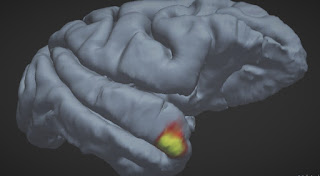If you want to improve your memory, maintain your ability to remember things and have a bright and active mind, you should do these activities regularly.
Seven tips that will keep you away from the specter of Alzheimer's and other diseases associated with a decline in mental strength.
With age, a person needs to keep his mind in a state of alertness and activity. There are many reasons to do this, but the most important of them is to confront Alzheimer’s disease , which is one of the top 10 causes of death in America, and is responsible for more than 121,000 deaths in the past year alone.
 |
| Brain x-ray |
To protect yourself, follow these seven basic tips that will improve your memory.
1- Use all your senses when learning something
Science has shown that memories of an event spread through the sensory centers of the brain , but are most concentrated in a region called the hippocampus.
If one of the senses is stimulated to evoke a memory, other memories are also stimulated that activate other senses.
Scientists say that's why if you smell a favorite dish, like lasagna or cake, you can remember exactly where you were when you ate it as a kid, according to Eat This.
Try applying this method to make new memories . If you want to remember something, think about it with your five senses when doing so.
2- The five-second trick
When learning new information, break it down, as you would when you memorize the phone number (555-439-9999).
Did you notice the three separate sections in the number? Now you can apply that to anything: your grocery list (meat, vegetables, dairy, snacks).
The names of people in a large meeting (the ones on the right side of the table, the ones on the left).
This trick will not take you much time, and when you divide the information into parts, you will find that it is easier to memorize. You can apply that rule to anything.
3- Incorporate this physical activity into your day
Try to get at least 150 minutes per week of outdoor physical activity. A brisk walk, or 75 minutes of vigorous exercise, can do the trick.
“Exercise and physical activity programs have been shown to improve brain health in many ways, including aspects such as memory, attention, and speed of information processing,” says health coach Ryan Glatt. "With the incidence of dementia and Alzheimer's disease on the rise, a multimodal individualized exercise program led by certified exercise professionals may be one of the best ways to make a positive impact against Alzheimer's disease."
4- Treat sleep as a priority
 |
| Doctors confirm that early sleep may limit wrong choices about eating and drinking late in the day |
"Get enough sleep!" ...that's what Dr. Miles Sparr, chief medical officer at Fault Hills Medical Center for Men's Health stresses: “Besides the well-known benefits of sleep, it is known that later in the night people make worse choices about eating and alcohol. early to close the way to those bad and harmful choices.
"Throughout the day, take time to rest when you can. Think about your work or favorite sport in a positive way before you go to bed." Dr. Spar asserts that a good night's sleep "can improve memory and attention".
5- Organize your life like this
According to experts from the famous Mayo Clinic, you are more likely to forget things if your house is crowded and your papers and important things are in a mess.
Hospital experts advise writing down tasks, appointments, and other events in a special notebook, calendar or electronic program. You can even repeat each entry out loud as you work on it to help cement it in your memory. Keep current to-do lists and check items you've completed. Make a place for your wallet, keys, glasses, and other essentials.
6- A great way from the Mayo Clinic
Mayo Clinic doctors advise limiting distractions and not doing too many things at once: "If you focus on the information you're trying to retain, you're more likely to remember it later. It may also help to associate what you're trying to keep with a favorite song or something else familiar to you." ".
Doctors say:
"The next time you want to remember people who attended a party or event, you would associate their names with the tunes of a specific song during an action such as washing hands or utensils, so you would associate the names with a specific music and practice."
7- Do this for 5 to 10 minutes daily
It is scientifically proven that stress interferes with the activity of your memory. Scientists say that stress affects cognition in a number of ways, acting quickly via catecholamine and slower via glucocorticoids (a hormone secreted by the adrenal gland that has the ability to suppress the immune system and reduce inflammation), says one study.
To clear your mind, Julie Boetker, a certified self-mindfulness coach and author of Life Falls Apart, advises calm and focus as you transition from one activity to the next to transition more seamlessly between different areas of your life, such as going from the office to the home, or Work to family mode if you work remotely.
Butecker also recommends taking 5-10 minutes to get a degree of focus after work and before interacting with your family, for example, which can make a huge difference in how you appear to your family after a busy day at work.
Add Comments